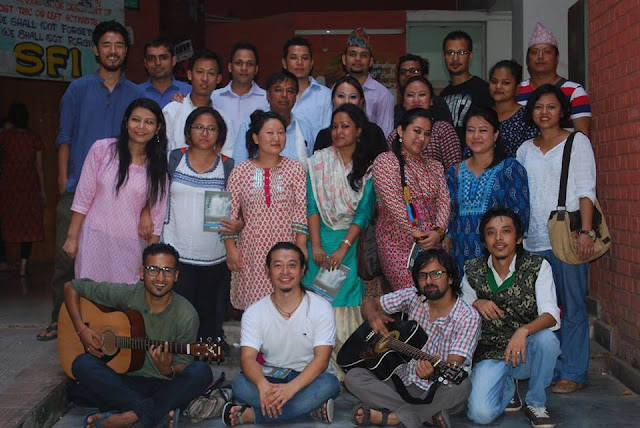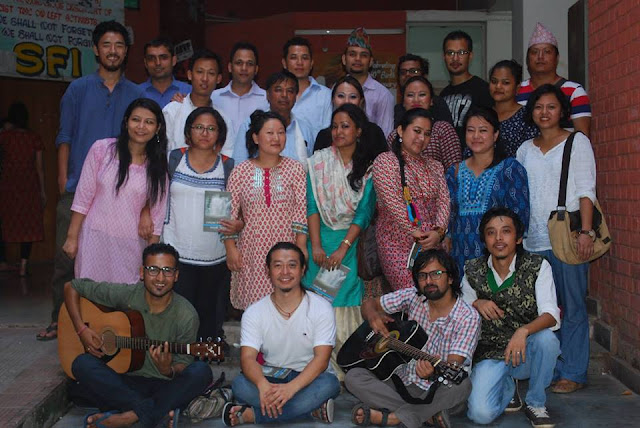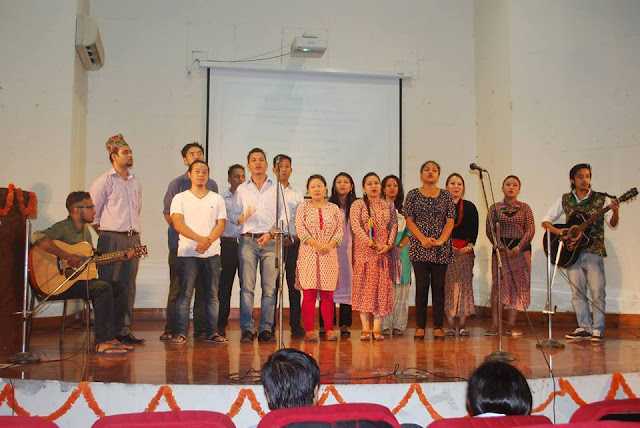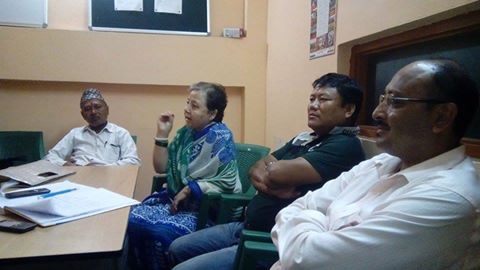Vivek Chhetri
Darjeeling, Aug. 20: Bimal Gurung today, 23rd Nepali Bhasha Diwas, said fighting with the state government over the Gorkhaland demand was a "mistake" as a separate state can be achieved only through the Centre.
 |
| Bimal Gurung at Gorkha Rangamanch Bhavan on Thursday. Picture by Suman Tamang |
While addressing a programme organised by the Gorkha Janmukti Yuva Morcha to celebrate Bhasa Divas, Gurung said: "We were fighting with the Bengal government and this was a mistake because even if Bengal wants, it cannot give Gorkhaland. Statehood can be given only by the Centre and I am 110 per cent confident that Prime Minister Narendra Modi will live up to his words."
At a public meeting in Siliguri on April 10, Modi had said; "The dream of the Gorkhas is my dream."
Gurung also spoke about the need to maintain peace in the hills. "There must be peace in the hills. Our party, since its inception (in 2007), has always talked about the need for peace. There was lot of bloodshed in Nagaland, but ultimately, they had to come to the negotiating table," he said.
During the last phase of agitation in 2013, nearly 1,000 Morcha supporters were arrested, including senior leaders.
"Right now, tourists are coming to Darjeeling hills. Funds are also flowing to the GTA. The GTA is a test of our administrative ability and very soon, we will be administering a state," Gurung said at the Gorkha Rangamanch Bhavan.
The Morcha chief, who had famously said that Gorkhaland would be created by March 10, 2010, today said: "... we have not lost hope and we will not do anything that will go against our community."
Gurung said he will meet Sikkim chief minister Pawan Chamling in Gangtok tomorrow and not on August 23. Sources said Chamling is scheduled to leave for Delhi tomorrow.
Gurung will meet Chamling to drum up support for the inclusion of 10 Gorkha communities in the ST list.
Morcha aid
Gurung, the chief executive of GTA, today handed over cheques of Rs 2 lakh to each of the next of kin of the 34 people who died in the June landslides. The GTA has decided to give additional help of Rs 50,000 each to Vivek Rai, a Class VI student from Kalimpong, and Selushna Thapa, a first-year student from Mirik, who lost their parents in the landslides.
Source: Telegraph
















